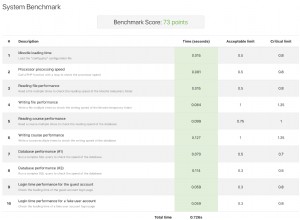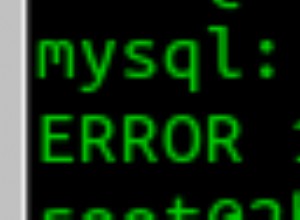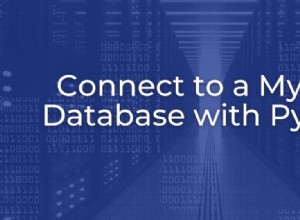Para intervalos de 15 minutos:
with i as (
select cf.tagindex, min(dateandtime) dateandtime
from contfloattable cf
group by
floor(extract(epoch from dateandtime) / 60 / 15),
cf.tagindex
)
select cf.dateandtime, cf."Val", cf.status, t.tagname
from
contfloattable cf
inner join
conttagtable t on cf.tagindex = t.tagindex
inner join
i on i.tagindex = cf.tagindex and i.dateandtime = cf.dateandtime
order by cf.dateandtime, t.tagname
Mostre a saída de explicação para esta consulta (se funcionar) para que possamos tentar otimizar. Você pode postá-lo nesta resposta.
Explicar saída
"Sort (cost=15102462177.06..15263487805.24 rows=64410251271 width=57)"
" Sort Key: cf.dateandtime, t.tagname"
" CTE i"
" -> HashAggregate (cost=49093252.56..49481978.32 rows=19436288 width=12)"
" -> Seq Scan on contfloattable cf (cost=0.00..38528881.68 rows=1408582784 width=12)"
" -> Hash Join (cost=270117658.06..1067549320.69 rows=64410251271 width=57)"
" Hash Cond: (cf.tagindex = t.tagindex)"
" -> Merge Join (cost=270117116.39..298434544.23 rows=1408582784 width=25)"
" Merge Cond: ((i.tagindex = cf.tagindex) AND (i.dateandtime = cf.dateandtime))"
" -> Sort (cost=2741707.02..2790297.74 rows=19436288 width=12)"
" Sort Key: i.tagindex, i.dateandtime"
" -> CTE Scan on i (cost=0.00..388725.76 rows=19436288 width=12)"
" -> Materialize (cost=267375409.37..274418323.29 rows=1408582784 width=21)"
" -> Sort (cost=267375409.37..270896866.33 rows=1408582784 width=21)"
" Sort Key: cf.tagindex, cf.dateandtime"
" -> Seq Scan on contfloattable cf (cost=0.00..24443053.84 rows=1408582784 width=21)"
" -> Hash (cost=335.74..335.74 rows=16474 width=44)"
" -> Seq Scan on conttagtable t (cost=0.00..335.74 rows=16474 width=44)"
Parece que você precisa deste índice:
create index cf_tag_datetime on contfloattable (tagindex, dateandtime)
Execute
analyze depois de criá-lo. Agora observe que qualquer índice em uma tabela grande terá um impacto significativo no desempenho nas alterações de dados (inserir etc), pois terá que ser atualizado a cada alteração. Atualizar
Eu adicionei o índice cf_tag_datetime (tagindex,dateandtime) e aqui está a nova explicação:
"Sort (cost=15349296514.90..15512953953.25 rows=65462975340 width=57)"
" Sort Key: cf.dateandtime, t.tagname"
" CTE i"
" -> HashAggregate (cost=49093252.56..49490287.76 rows=19851760 width=12)"
" -> Seq Scan on contfloattable cf (cost=0.00..38528881.68 rows=1408582784 width=12)"
" -> Hash Join (cost=270179293.86..1078141313.22 rows=65462975340 width=57)"
" Hash Cond: (cf.tagindex = t.tagindex)"
" -> Merge Join (cost=270178752.20..298499296.08 rows=1408582784 width=25)"
" Merge Cond: ((i.tagindex = cf.tagindex) AND (i.dateandtime = cf.dateandtime))"
" -> Sort (cost=2803342.82..2852972.22 rows=19851760 width=12)"
" Sort Key: i.tagindex, i.dateandtime"
" -> CTE Scan on i (cost=0.00..397035.20 rows=19851760 width=12)"
" -> Materialize (cost=267375409.37..274418323.29 rows=1408582784 width=21)"
" -> Sort (cost=267375409.37..270896866.33 rows=1408582784 width=21)"
" Sort Key: cf.tagindex, cf.dateandtime"
" -> Seq Scan on contfloattable cf (cost=0.00..24443053.84 rows=1408582784 width=21)"
" -> Hash (cost=335.74..335.74 rows=16474 width=44)"
" -> Seq Scan on conttagtable t (cost=0.00..335.74 rows=16474 width=44)"
Parece ter subido no tempo :( No entanto, se eu remover a cláusula order by (não exatamente o que eu preciso, mas funcionaria), é isso que acontece, grande redução:
"Hash Join (cost=319669581.62..1127631600.98 rows=65462975340 width=57)"
" Hash Cond: (cf.tagindex = t.tagindex)"
" CTE i"
" -> HashAggregate (cost=49093252.56..49490287.76 rows=19851760 width=12)"
" -> Seq Scan on contfloattable cf (cost=0.00..38528881.68 rows=1408582784 width=12)"
" -> Merge Join (cost=270178752.20..298499296.08 rows=1408582784 width=25)"
" Merge Cond: ((i.tagindex = cf.tagindex) AND (i.dateandtime = cf.dateandtime))"
" -> Sort (cost=2803342.82..2852972.22 rows=19851760 width=12)"
" Sort Key: i.tagindex, i.dateandtime"
" -> CTE Scan on i (cost=0.00..397035.20 rows=19851760 width=12)"
" -> Materialize (cost=267375409.37..274418323.29 rows=1408582784 width=21)"
" -> Sort (cost=267375409.37..270896866.33 rows=1408582784 width=21)"
" Sort Key: cf.tagindex, cf.dateandtime"
" -> Seq Scan on contfloattable cf (cost=0.00..24443053.84 rows=1408582784 width=21)"
" -> Hash (cost=335.74..335.74 rows=16474 width=44)"
" -> Seq Scan on conttagtable t (cost=0.00..335.74 rows=16474 width=44)"
Eu ainda não tentei este índice ... vai fazê-lo embora. espera.
Agora, olhando novamente, acho que o índice inverso poderia ser ainda melhor, pois pode ser usado não apenas no
Merge Join mas também no Sort final :create index cf_tag_datetime on contfloattable (dateandtime, tagindex)




